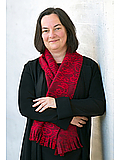Segregation und Trägerschaft. Eine quantitativ-qualitative Studie zur Untersuchung von sozialer und ethnischer Entmischung in Kitas (SET)
Projektleiter:
Projektbearbeiter:
Dipl.-Päd. Gesine Nebe
Projekthomepage:
Finanzierung:
Bund;
Eingebunden in einen größeren Vernetzungszusammenhang mit weiteren Projekten der Förderrichtlinie "Qualitätsentwicklung für gute Bildung in der frühen Kindheit" des Bundesministeriums für Bildung und Forschung fokussiert das Verbundprojekt soziale und ethnische Segregation in Kindertageseinrichtungen und wie diese mit der Trägerpluralität im Zusammenhang steht. Dabei untersucht das in Münster angesiedelte Teilprojekt "Segregationsmuster in Deutschland" (SET:ID) strukturanalytisch trägerspezifische Segregationsmuster auf der Basis repräsentativer Daten (NEPS; K2ID:SOEP). Das Teilprojekt "Trägerspezifische Organisationskulturen und Handlungspraktiken" (SET:OHA) wird daran anknüpfend und anhand vertiefender und kontrastiver Interviews den spezifischen Organisationskulturen und Handlungspraktiken ausgewählter Träger bei der Vergabe von Einrichtungsplätzen nachgehen. Ziel ist es, nationale, regionale und lokale Trägerlandschaften und administrative Strukturen zu beschreiben, die zum Gelingen eines inklusiven Systems frühkindlicher Bildung beitragen.
Kooperationen im Projekt
Kontakt

Prof. Dr. Johanna Mierendorff
Martin-Luther-Universität Halle-Wittenberg
Franckeplatz 1
06110
Halle (Saale)
Tel.:+49 345 5523788
weitere Projekte
Die Daten werden geladen ...

